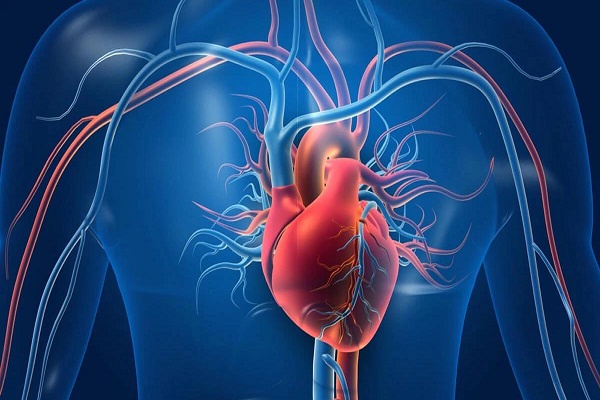Understanding B7-33 and Its
Potential in Cardiovascular Health


At Pharma Lab Global, In the ever-evolving field of cardiovascular research, scientists continually seek innovative solutions to tackle heart diseases. One peptide that has recently emerged as a promising candidate for improving heart health is B7-33. Though currently restricted to research use, early findings suggest that B7-33 could have a transformative impact on heart function and the prevention of cardiac fibrosis. But what exactly makes B7-33 so intriguing to researchers? And how does it stand to benefit cardiovascular health?
The cardiovascular system is an intricate network, tasked with circulating blood, oxygen, and nutrients throughout the body. Disruptions in this system can lead to serious conditions, including heart failure and hypertension. Among the growing list of peptides being investigated for their therapeutic potential, B7-33 stands out due to its ability to influence key molecular pathways that govern heart health.
The B7-33 cardiovascular benefits are gaining attention for their potential to improve heart function. B7-33 is a modified version of the human relaxin-2 hormone, which plays a role in reducing inflammation and fibrosis. Fibrosis—the excessive buildup of scar tissue—can severely impair heart function by making the heart muscle stiffer and less efficient. Preliminary studies suggest that B7-33 could help counteract fibrosis, enhancing the heart’s elasticity and improving its overall function.
One of the most exciting areas of B7-33 research is its potential to reduce cardiac fibrosis. The buildup of fibrous tissue in the heart can lead to stiffening of the heart muscle, resulting in conditions like heart failure or arrhythmias. By leveraging its relaxin-based structure, B7-33 may regulate collagen production and reduce the formation of fibrous tissue in the heart.
Through interaction with specific receptors in the cardiovascular system, B7-33 may prevent the heart from becoming excessively stiff, ultimately improving its function. As studies continue to explore its effects, researchers are hopeful that B7-33 could become a pivotal tool in the fight against heart disease, offering a new way to treat the underlying causes of heart dysfunction.
Chronic inflammation is one of the primary culprits behind many cardiovascular diseases. It can damage blood vessels, increase plaque buildup in arteries, and promote conditions like atherosclerosis. Here again, B7-33 shows promise. Research suggests that B7-33 has anti-inflammatory properties, potentially reducing the immune responses that contribute to cardiovascular disease progression.
By modulating the pathways that control inflammation, B7-33 could provide a new avenue for preventing or managing conditions such as atherosclerosis. Its dual ability to tackle both fibrosis and inflammation makes it a valuable candidate in the development of future cardiovascular therapies.
Hypertension, or high blood pressure, is a major risk factor for cardiovascular diseases, including heart attacks and strokes. Researchers are particularly interested in how B7-33 could influence blood pressure regulation. Since B7-33 is linked to relaxin-based peptides, it may help relax blood vessels, which could reduce strain on the heart and improve blood flow.
While this area of research is still in its early stages, the vasodilatory effects of B7-33 could make it a crucial player in the development of new treatments for high blood pressure. If further studies confirm its role in relaxing blood vessels, B7-33 could offer new ways to control blood pressure and enhance long-term cardiovascular health.
In the world of cardiovascular research, peptides like Hexarelin have already shown beneficial effects on heart health. Hexarelin, a growth hormone secretagogue, is known for its cardioprotective properties, particularly following heart attacks. But how does B7-33 compare?
While Hexarelin works primarily through stimulating growth hormone release to promote heart muscle regeneration, B7-33’s main mechanisms lie in its anti-fibrotic and anti-inflammatory actions. This makes B7-33 a unique contender in the fight against heart disease, addressing different aspects of heart health than peptides like Hexarelin. As research continues, scientists hope to determine whether B7-33 could offer even more potent benefits than other cardiovascular peptides.
Vascular health is critical to overall cardiovascular well-being. A well-functioning vascular system ensures that blood, oxygen, and nutrients are efficiently delivered throughout the body. Some studies suggest that B7-33 may help improve vascular health by enhancing the elasticity of blood vessels, thus reducing stiffness.
If ongoing research continues to support these findings, B7-33 could become an essential tool in maintaining vascular health and preventing conditions like strokes and heart attacks. The ability to promote vascular elasticity could be a game-changer in the prevention of cardiovascular diseases.
While B7-33 is currently limited to research purposes, it holds great promise for the future of cardiovascular medicine. Scientists are investigating its role in various heart-related conditions, including cardiac fibrosis, hypertension, and inflammatory heart diseases.
The potential future applications of B7-33 research include:
Investigating its long-term effects on heart muscle health
Understanding how it interacts with other cardiovascular peptides
Exploring its potential synergy with existing heart medications
Assessing its safety and dosage thresholds in human clinical trials
B7-33 exerts its effects by activating specific receptors involved in tissue remodeling, blood vessel relaxation, and inflammation control. Unlike traditional treatments that often focus on managing symptoms, B7-33 targets the underlying causes of cardiovascular dysfunction. Its interaction with relaxin family peptide receptors (RXFP1) helps regulate heart tissue elasticity and reduce scarring, thus improving overall heart health. Go to Homepage
Despite its promising cardiovascular benefits, it’s important to note that B7-33 is strictly for research use and not for human consumption. Continued studies are necessary to fully understand its potential, safety, and long-term effects. As research progresses, scientists are hopeful that B7-33 will become a cornerstone in the development of novel heart health treatments.
The cardiovascular benefits of B7-33 are still unfolding, but its anti-fibrotic, anti-inflammatory, and blood pressure-regulating properties suggest that it could play a significant role in improving heart health. While research is ongoing, the peptide’s unique mechanisms make it a fascinating subject of study.
By comparing B7-33 to other cardiovascular peptides like Hexarelin, researchers can better understand its potential applications and mechanisms. With further investigation, B7-33 could open new doors to effective treatments for heart disease, paving the way for more advanced and targeted therapies.